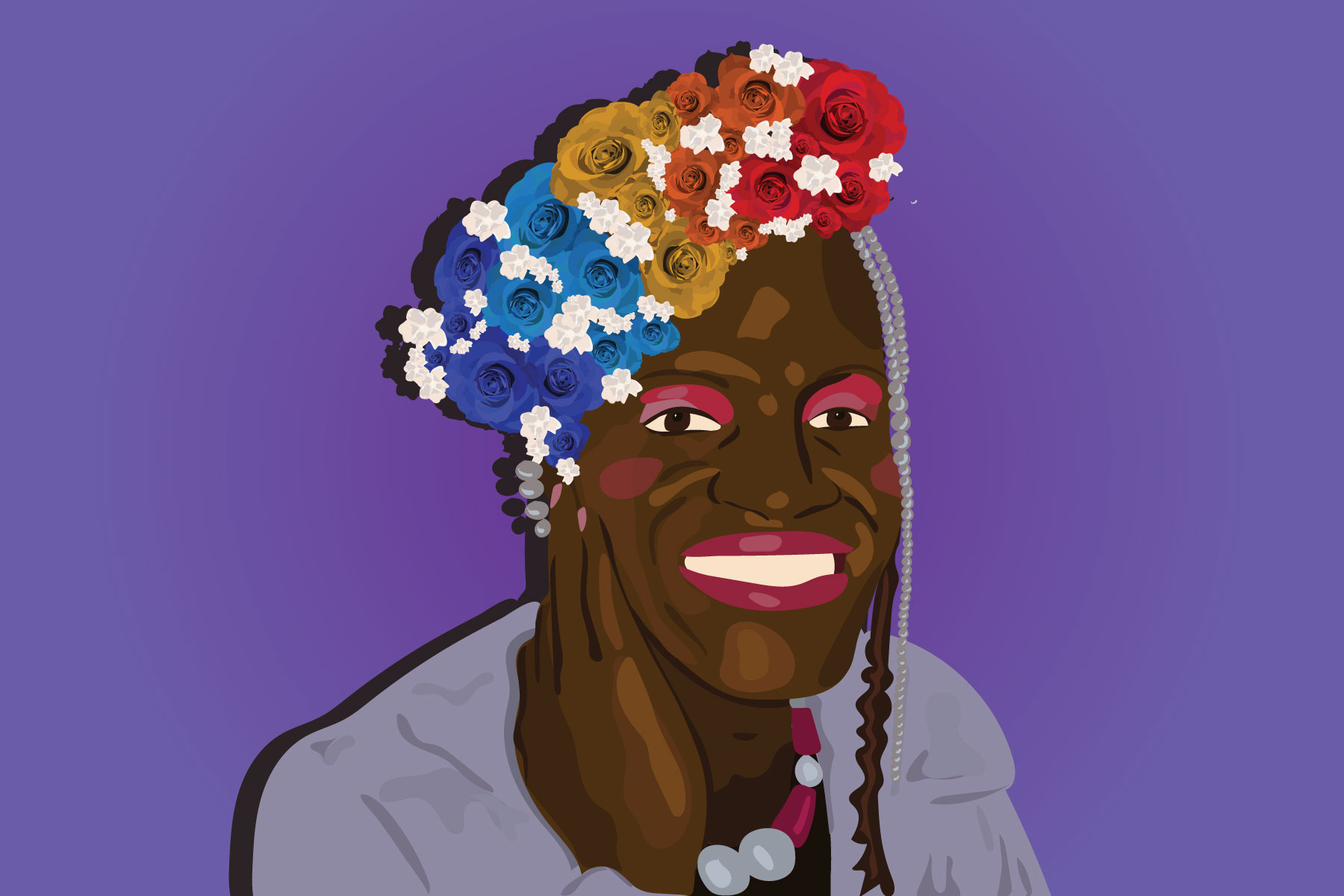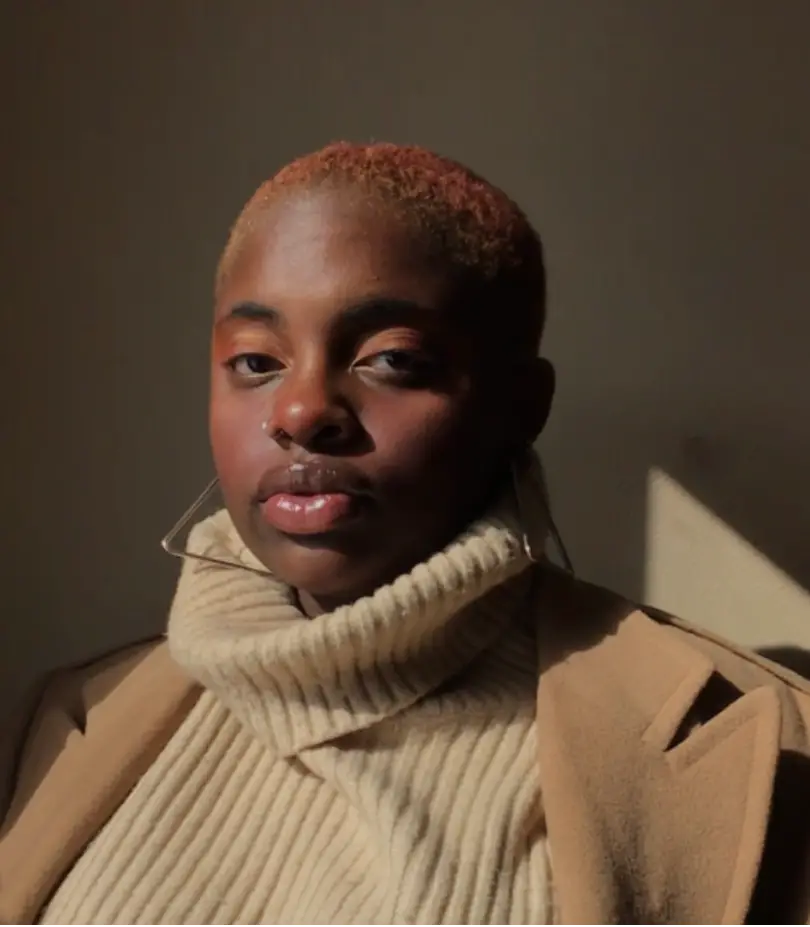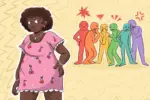Black History Month is a time of jubilation and reflection for black people everywhere, but LGBT+ black Americans are often left out of the festivities. This erasure can be explained by Kimberlè Crenshaw’s famous framework on intersectionality from her 1989 paper, “Demarginalizing the Intersection of Race and Sex: A Black Feminist Critique of Antidiscrimination Doctrine, Feminist Theory and Antiracist Politics.”
She wrote: “Discrimination, like traffic through an intersection, may flow in one direction, and it may flow in another. If an accident happens in an intersection, it can be caused by cars traveling from any number of directions, and sometimes, from all of them.”
Black LGBT+ people are positioned at the crossroads of racial, homophobic and transphobic discrimination. The group has an important place in Black History Month celebrations: to celebrate the contributions LGBT+ black Americans have made. Here are five history icons from the movement.
1. Bayard Rustin
Bayard Rustin was born on March 17, 1912, in West Chester, Pennsylvania. A pacifist, socialist and a proponent of nonviolent resistance, Rustin rarely compromised on his beliefs and was arrested several times for refusing to register for the draft as well as protesting segregated public transit.
Through the civil rights organizations he was involved in, he met Dr. Martin Luther King Jr. and began working as his advisor in 1955. During this time, he began assisting King with both the Montgomery Bus Boycotts in 1956 and the March on Washington for Jobs and Freedom in 1963.
Rustin lived openly as a gay man despite being punished with jail time for his sexuality. In 1986, he worked to make the NAACP aware of the AIDS crisis, calling gay rights “the central struggle of our time, the central struggle for democracy and the central struggle for human rights,” making black LGBT+ history as the first person to do so.
2. Marsha P. Johnson
On Aug. 24, 1945, one of the most influential figures in black LGBT+ history was born. Marsha P. Johnson was the fifth of seven children. Moving to Greenwich Village, New York from Elizabeth, New Jersey directly after high school, she became a survival sex worker due to discrimination she faced as a black transgender woman, which prevented her from getting other jobs.
Johnson is most well known for her role in the Stonewall riots of 1969 where she and other LGBT+ individuals resisted a police raid on Stonewall Inn. Johnson also battled oppression while organizing and creating North America’s first homeless shelter for LGBT+ youth called Street Transvestite Action Revolutionaries (STAR).
Religious and consumed with a need to help others, she marched with the AIDS activist organization ACT UP despite the majority of the LGBT+ community’s objections to drag queens and trans women during the 1973 Pride March. Her closest friend and fellow trans woman of color, Sylvia Rivera, was booed off stage by many within the group. Johnson died under unclear circumstances in 1992, but her legacy persists despite best attempts to erase it.
3. Audre Lorde
Audre Lorde, born in New York City on Feb. 18, 1934, described herself as a “black, lesbian, mother, warrior, poet.” She inherited a love of reading and writing from her mother and published her first poem in Seventeen magazine while attending Hunter High School as one of the first black students there, making black LGBT+ history. After attending the National Autonomous University of Mexico in 1954, Hunter College in 1959 and Columbia University in 1961, she worked as a librarian while working at Town School and later published her first collection of poetry in 1968, “The First Cities.”
In 1970, she published “Cables to Rage” and came out as a lesbian. Themes of social justice and the black LGBT+ experience permeated Lorde’s work rendering it relevant to this day. When she wasn’t writing, Lorde involved herself in several feminist and civil rights circles, protesting the Vietnam War, and establishing “The Kitchen Table: Women of Color Press,” which was dedicated to promoting the writing of black feminists, as well as “Sisterhood in Support of Sisters in South Africa,” addressing apartheid.
Lorde died of breast cancer in 1992 after a 14-year-long battle. This fight was documented in “Cancer Journals,” her first prose novel and winner of the National Book Award.
4. Barbara Jordan
Barbara Jordan was born the daughter of a Baptist preacher in Houston, Texas, on Feb. 21, 1936. Public speaking and rhetoric came to her naturally, winning a debate competition while attending Phyllis Wheatley High School. Jordan earned her law degree at Boston University Law School and went on to be the first black woman elected to the Texas Senate. She became well-known after working on John F. Kennedy’s presidential campaign in 1960.
Jordan became a member of the U.S. House of Representatives from Texas’ 18th District in 1972, where she advocated for civil rights and environment-protecting legislation. She is best known for her 1974 speech calling for the impeachment of Richard M. Nixon where, as a member of the House Judiciary Committee, she said, “I am not going to sit here and be an idle spectator to the diminution, the subversion, the destruction of the Constitution.”
In death, it was revealed that she was an important part of black LGBT+ history; her family and friends were aware that her caregiver Nancy Earl was Jordan’s partner of 20 years.
5. Joan Jett Blakk
Joan Jett Blakk is the drag persona of Terrence Smith. She ran for both mayor of Chicago and president of the United States as a member of the Queer Nation Party. The “camp-pains” as Blakk called them, were not run with the intent to win, but instead were designed to draw attention to LGBT+ rights in America that were being overlooked during the height of the AIDS crisis.
Blakk famously said “We had a bad actor [for president], why can’t we have a drag queen?” in a 1992 interview. Her policies, once elected, included replacing the military with “Dykes on Bikes” at the border, universal healthcare and the abolition of all student debt. Despite Blakk’s status as a joke candidate, she ran for president again in 1996 on the Blakk Pantsuit Party ticket, cementing her status in black LGBT+ history as America’s first drag queen presidential candidate.

















